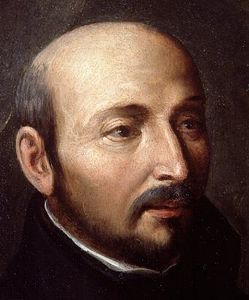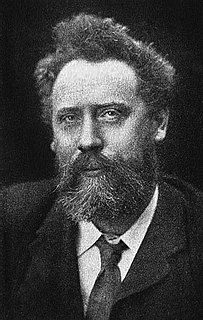A Quote by Adam Smith
The principle which prompts to save is the desire of bettering our conditiona desire which?comes with us from the womb and never leaves us till we go into the grave.
Related Quotes
It is not merely our own desire but the desire of Christ in His Spirit that drives us to grow in love. Those who seldom or never feel in their hearts the desire for the love of God and other men, and who do not thirst for the pure waters of desire which are poured out in us by the strong, living God, are usually those who have drunk from other rivers or have dug for themselves broken cisterns.
Our God, who art our winged self, it is thy will in us that willeth.
It is thy desire in us that desireth.
It is thy urge in us that would turn our nights, which are thine, into days which are thine also.
We cannot ask thee for aught, for thou knowest our needs before they are born in us:
Thou art our need; and in giving us more of thyself thou givest us all.
St. Augustine teaches us that there is in each man a Serpent, an Eve, and an Adam. Our senses and natural propensities are the Serpent; the excitable desire is the Eve; and reason is the Adam. Our nature tempts us perpetually; criminal desire is often excited; but sin is not completed till reason consents.
Love, which is lust, is the Lamp in the Tomb.
Love, which is lust, is the Call from the Gloom.
Love, which is lust, is the Main of Desire.
Love, which is lust, is the Centric Fire.
So man and woman will keep their trust,
Till the very Springs of the Sea run dust.
Yea, each with the other will lose and win,
Till the very Sides of the Grave fall in.
For the strife of Love's the abysmal strife,
And the word of Love is the Word of Life.
And they that go with the Word unsaid,
Though they seem of the living, are damned and dead.
The word desire suggests that there is something we do not have. If we have everything already, then there can be no desire, for there is nothing left to want. I think that what the Buddha may have been trying to tell us is that we have it all, each of us, all the time; therefore, desire is simply unnecessary.
But if, indeed, there be a nobler life in us than in these strangely moving atoms; if, indeed, there is an eternal difference between the fire which inhabits them, and that which animates us,--it must be shown, by each of us in his appointed place, not merely in the patience, but in the activity of our hope, not merely by our desire, but our labor, for the time when the dust of the generations of men shall be confirmed for foundations of the gates of the city of God.
It is not given to us to grasp the truth, which is identical with the divine, directly. We perceive it only in reflection, in example and symbol, in singular and related appearances. It meets us as a kind of life which is incomprehensible to us, and yet we cannot free ourselves from the desire to comprehend it.



































